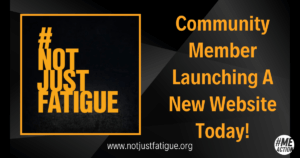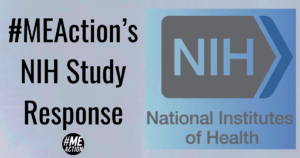The National Institute of Health and Care Excellence (NICE) is rewriting the UK ME guidelines. As part of this process, the Forward-ME Group, of which #MEAction UK is a member, has prepared a questionnaire to provide additional evidence on cognitive behavioural therapy (CBT) and graded exercise therapy (GET) to NICE. The new guideline is expected to be published in October 2020. Take the survey and read the Forward-ME statement below.
[maxbutton id=”21″ url=”https://brookeshls.co1.qualtrics.com/jfe/form/SV_cwGfVEpqF7CmdTL” text=”Take the survey ” ]
Statement by the Forward ME Group
Forward-ME has launched a survey, having been asked by the National Institute of Health and Care Excellence (NICE) to gather evidence and experiences of Graded Excersise Therapy (GET) and Cognitive Behavioural Therapy (CBT). NICE has recently started the process of reviewing (and ultimately replacing) the guideline on ME/CFS Diagnosis and Management. As part of this process Forward-ME welcomes the opportunity to ensure that the views of the patients are taken into account at an early stage.
The survey focus is deliberately narrow and concentrates solely on GET and CBT, a key issue for people with ME/CFS. It will be independently analysed by a team from Oxford Brookes University, before being submitted to NICE at the end of February. The deadline for completing this questionnaire is the the 31st January 2019, to meet the timeframe set out by NICE. This unfortunately means that Forward ME do not have the time or capacity to send out/accept paper copies. We will make it very clear to NICE when we submit the report that those unable to complete the survey online, including many severely affected people, have not been able to take part. The survey is however designed to allow a carer, parent or another person to fill it in on behalf of someone else if they are unable to do this themselves.
The Countess of Mar, Chair of Forward-ME said: “We are very pleased that the newly formed NICE Guideline Development Group (GDG) have indicated that they want to work closely with charities representing people with ME. They have requested further evidence of outcomes and consequences of CBT and GET in patients with ME. Although both the ME Association and Action for M.E. have previously carried out surveys of their members, Forward ME have been asked if they will conduct a survey which will reach as many M.E. sufferers as possible in order to provide the GDG with up-to-date results.”
The survey is designed for adults and children who have been diagnosed with myalgic encephalomyelitis (ME), chronic fatigue syndrome (CFS), ME/CFS, or post-viral fatigue syndrome (PVFS), and who have undertaken or were offered CBT or GET in the UK since 2007. All responses collected in this survey will be anonymous.
The Countess of Mar continues: “We are sure that you will recognise how important it is that the new NICE guideline reflects the real situation of people with ME and that, by completing this survey you will be helping the GDG to reach informed conclusions that will be the basis of their recommendations for the new ME guideline.”
Take the questionnaire here before the 31st January.







1 thought on “Tell NICE your experience of CBT/GET. Take the survey now!”
I was a Consultant Clinical Psychologist prior to having to take early retirement due to ME. I was a qualified CBT therapist and also worked as a Health Psychologist, teaching Graded Excercise and Pacing to patients with chronic conditions. I believe that CBT and GET were helpful for SOME of these patients. I was then offered CBT and GET myself when I became ill. I found CBT to be inappropriate and unhelpful for ME. An approach such as ACT (Acceptance and Comittment Therapy) would have been much more clinically appropriate, assisting me towards much needed acceptance and commitment to living my best disabled life. I am fortunate that GET did not permanently exacerbate my ME, has it has done many others. Research in the US has now demonstrated that due to metabolic differences in ME patients, GET is unhelpful, even dangerous to patients.
Comments are closed.